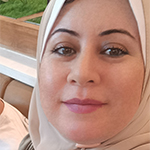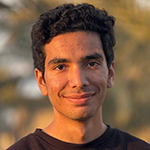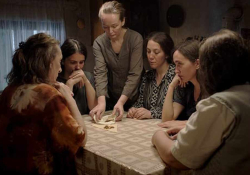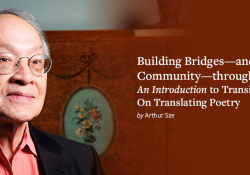A Distorted Portrait of Survival
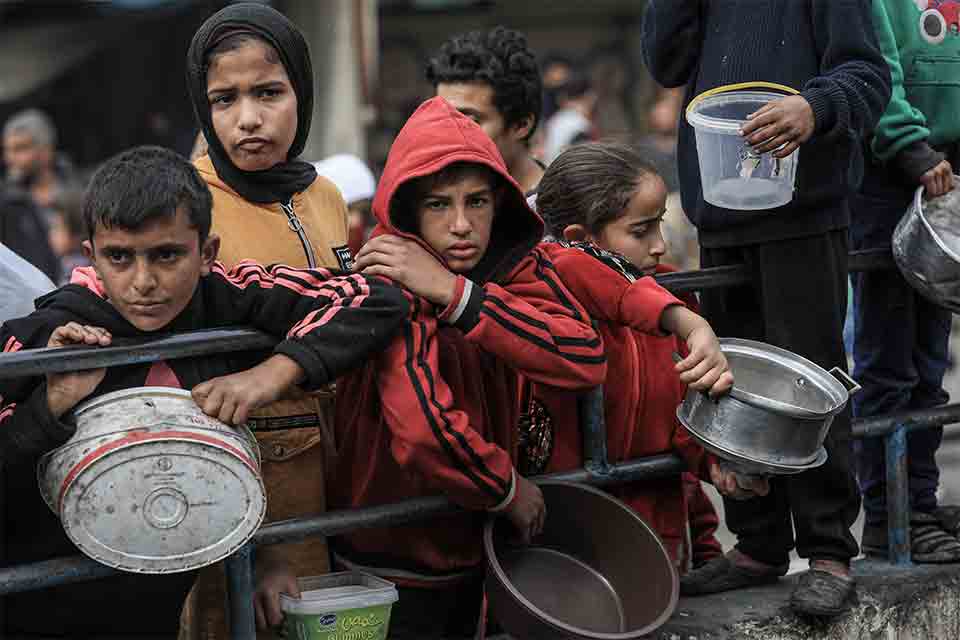
After seeking safety in Cairo, relentless questions remain: Is there a return? Will hunger haunt my children again?
The journey of survival was never ordinary—it was an individual risk from the start, a personal deliverance for family amid a fear that clung to both soul and flesh.
And the body that carried you from city to city, from place to place, was no ordinary body at all—it was a machine run on terror and the desperate search for shelter, food, and water.
As for the soul, it detached from that body—a body that started wondering what was happening to it, spinning in its own orbit. The soul could no longer endure what was happening; it latched onto some spot to watch this body, now lost and wandering, running unconsciously in search of survival by any means—even if it were already dead, still forced to walk on both feet.
With every passing moment, more questions emerged—questions for which no one had any answers. The inquiry grew vast and tangled, branching into a myriad of directions that led nowhere but deepened your doubts about the past, the present, and whether there is a future you could imagine—or even dare to think of—as possible.
At first, it was simply the question of leaving the house. Then the questions grew to be more, and the stubborn insistence of staying became only a temporary answer. Waiting became the constant companion for the days that now lay scattered in our laps, known only through the news or even by sheer coincidence.
Waiting became the constant companion for the days that now lay scattered in our laps.
The door opened by these questions had now become a nightmare to the wanderer from Gaza—an aimless traveler clinging to any hope of survival, indifferent to the shape of his body, his pale face, or his features that had changed.
We became refugees and displaced, carrying our belongings from one shelter to another—along with them, the big and small questions: the family’s questions, the children’s, the girls’, and the young men’s. What does it mean for this body to remain alive?
My daily memory turned bitter—I forgot the shape of my home and my everyday life. Days pile up on the calendar like bombs—I am on the verge of exploding within it or it within me.
There is a lump in the heart and a nightmare too heavy for the mind; the homes we left behind are not just mere walls—they are made of our family’s flesh and bones, of its memory, its anger, and its joy. Homes are a man, a woman, children—a collective portrait of a family on the wall.
Recently, houses have collapsed upon one another—no doors, no windows, no embraces or farewells at the threshold; no bouquets of roses or trees. Even the paved road that once accentuated a home’s elegance has lost its features, and the house that stood amid a garden has now been buried within it.
I drown in rage until I take its very shape—so that neighbors hear that roar of my protest rising like smoke, even though I am a woman who despises loud noises, and so now I have become that loud voice.
I arrange my wandering memories in my small drawers, in the plastic kitchen containers, in the bottles of shampoo and detergent. How can I fold what remains of my life’s details into my children’s closet? How do I gather them quickly, tucking them into the bag of displacement? How did I leave the coffee machine exposed to dust and silence? How did we leave the windows shut!?
The word “displacement” emerges from everywhere. It comes from the cold windows, from the terrifying nights, from the weary moans of the sick children. It ambushes me in a fleeting moment of laughter when I forget myself. It curls inside the bags, slips into the empty water bottles, clings to our shoes that have traversed distances in search of tissues and a tin of oil. It rides with us on carts and vehicles, settling in our car, which only moves for journeys of displacement from one city to another, conserving what remains of its fuel.
The bitter memory stings me—days stretching across the hospital’s floor like martyrs. The days perish too, departing with us into eternity. The days are our provisions in war; we folded them into each other, tucking them away like belongings we couldn’t afford to lose. We count them on our fingers as we watch life slip away.
All the while, I reach for my children’s limbs, practicing my fearful motherhood in the homes of friends. We no longer have a house where we can shout at our kids when their chaos overwhelms us. I hush them constantly, swallowing my voice, as I remember how it once rose freely in my own home. I imagine the neighbors had heard every bit of our daily tale—me calling out: “Time for bed! Brush your teeth! Do your homework!”
At home, we lived our ordinary lives, unconcerned with what the neighbors thought or the passersby in the street, because we were in our own land. But now, we whisper: “Keep your voices down, we’re not at home. . . . What will the Egyptians think of us?”
The road we took to leave—it has led us beyond the borders. After running out of answers, we began to choose between a fate shackled by fear and death or a fate shackled by sorrow and exile. Moving from one city to another within a land you know—that was bearable. But now, you move to a new city, with all its details, in a foreign land. Maybe you will grow fond of it, maybe it will grow fond of you, but it will never be yours.
A year has passed swiftly, and the war continues to devour what remains of our faces and our memories. A year has passed as if we were limping down the road. No one knows the weight of their own spine until they lift their eyes to the sky and weep. No one understands the stomach pains that never ease, or the relentless anxiety that refuses to rest. We see nothing in the corners except the shadows of our past days. This picture frame resembles us. This tray resembles us. This tablecloth, this chair—everything looks like us, but nothing looks like home.
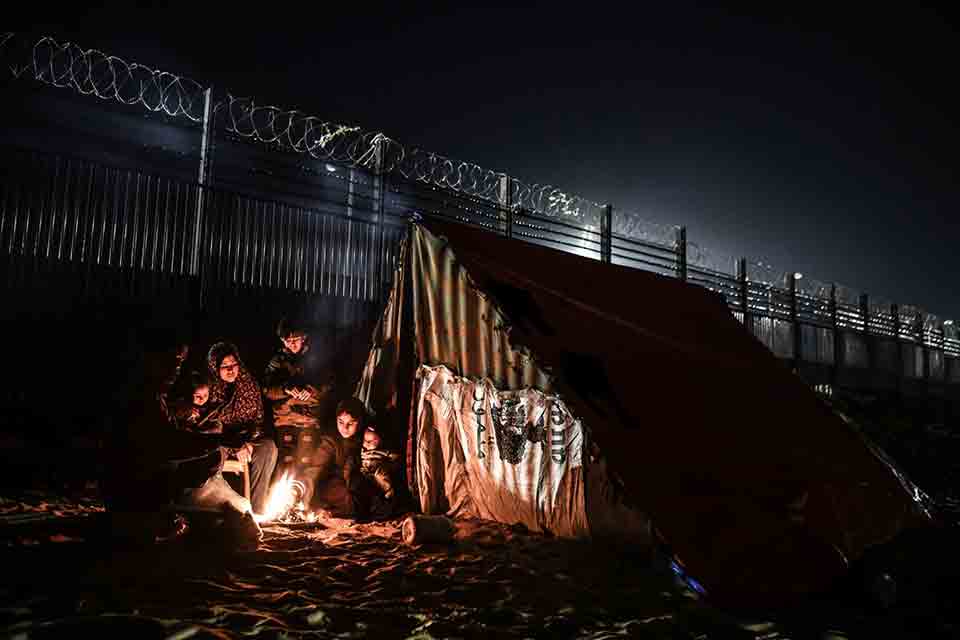
We see nothing in the corners except the shadows of our past days.
We passed through the teeth of fear, sealing our lips so tightly that we no longer spoke of the suffocation we found beyond our devastated land. For out there, exile is harsher, death more ruthless, survival more bitter, and hope more slaughtered. We feared survival as if it were a sin, reasoning those eight months of war had taught us much, had made us go through what we went through. But it was never enough to feel safe.
We are always afraid—even of the sound of a civilian plane passing overhead, bowing our heads as we brace for the missile. Afraid that someone will catch us in the act of sipping a cold juice, eating a piece of candy, or indulging in a hearty meal. And so, we excuse ourselves: “We have lived through war, through deprivation.” Afraid of never meeting again, of never returning. Afraid of ending up like those whom the Nakba of ’48 scattered, so that wandering becomes lostness, and one Nakba becomes another.
Wandering becomes lostness, and one Nakba becomes another.
News reaches us in Cairo: the displaced have returned north. “Your house is fine, thank God.”
A house still standing is a blessing.
And yet, a new question strikes me: Why are we not there? Why didn’t we return with the others? How did the decision to leave the country become a gamble that cost us our right to return home? Even though we were dying—slowly or quickly, it didn’t matter—our situation had never allowed us the luxury of choosing between staying or leaving.
Videos of our home reach me. “The place is missing you.”
“The house doesn’t feel right without you.”
But Gaza has no water, no life. “Don’t come back . . .”
And the question returns: What has our home done in our absence?
How do our belongings look now? What do they mean, now that we are oceans away?
I would stare at the house, and the ache of memory crushes me. Here, we spent our last days. Here, we watched our last film. Even those we lost along the way sat here with us once. Everything was covered in dust, overturned, unrecognizable. It was no longer the home where I laid down the rules, where no breeze passed except through me. It had become an abandoned place, its windows, doors, and walls wounded. Nothing in it held meaning, not with us this far away.
They found bullets piercing my bedroom walls. They saw a bullet shattering my mirror in half—my mirror, where I practiced daily confidence, where I concealed disappointment, where I faked joy, where my postponed womanhood bloomed after the children slept, where I captured fleeting smiles in selfies. That mirror, which I once burdened with too much praise, it was mine. Now, all the images that knew me, that I had recorded in its glass memory, are gone. It saw only my last reflection—me, carrying my home on my back, my eyes drowning in thousands of unshed tears, My heart bleeding onto the floor. The bleeding was long, and it never stopped. And so, the relentless question remains: “Is there a return?”
A question that presses upon me, as fear grips my children at every whisper of war’s return. Will hunger haunt them again, hanging them at its gates once more? Longing winks at us every time, stretches out its hands, and pulls us into a fleeting moment of embrace after a forced absence from our loved ones. But it has returned, more savage than before, and the fear of the unknown—of life slipping from between our fingers—grows more vicious. And we—helpless—watch, wait, ache, grieve, and weep in silence, or with a choked voice no one hears. We are a voice that longed for life, but life did not want us!
And this war—this war has returned. It has returned carrying new death for us, for our dreams of return. It has returned waving the promise of long exile, of hunger devouring our friends. War is a beast that never tires of blood, never tires of sorrow. And we find ourselves once again tethered to the thought of death. Civilian planes fly above us, and we flinch, mistaking them for death. Death clings to our shirts, even when we change them. It hides in our bags, even when we stash them under the bed. It moves with us throughout the day, eats away at our cautious hours, lurking, waiting—for us, for every attempt we thought was a real chance at survival.
Translation from the Arabic

